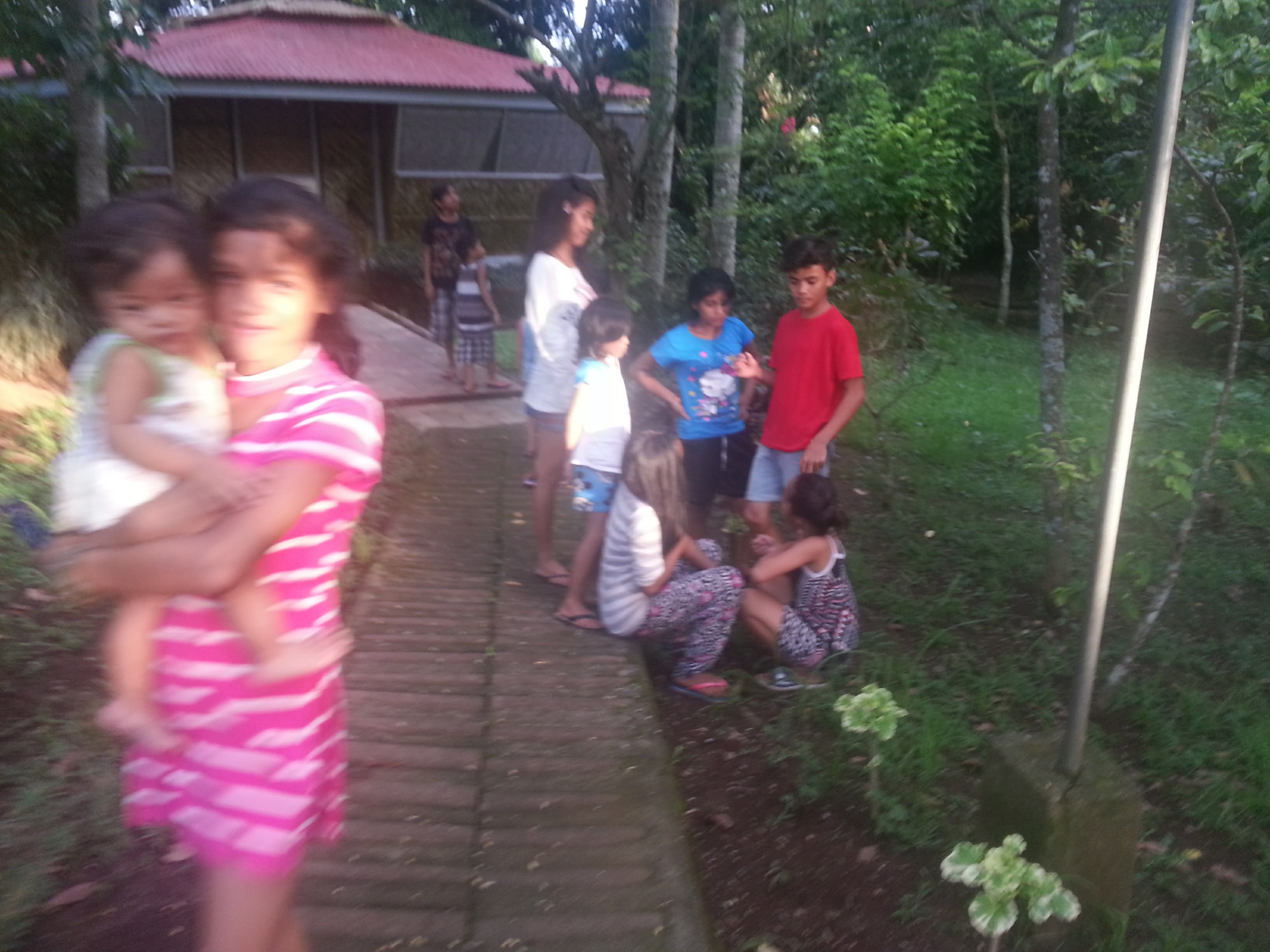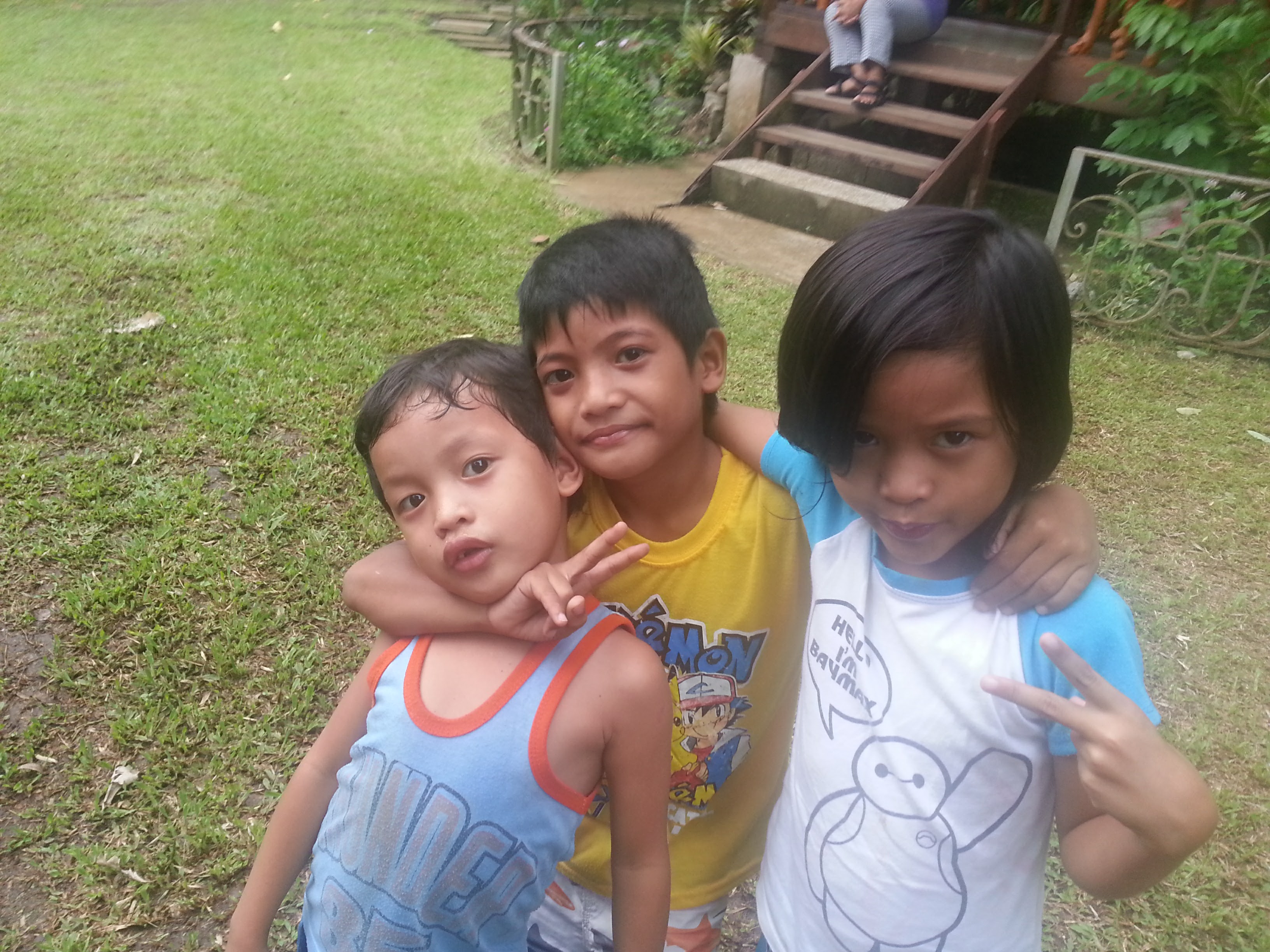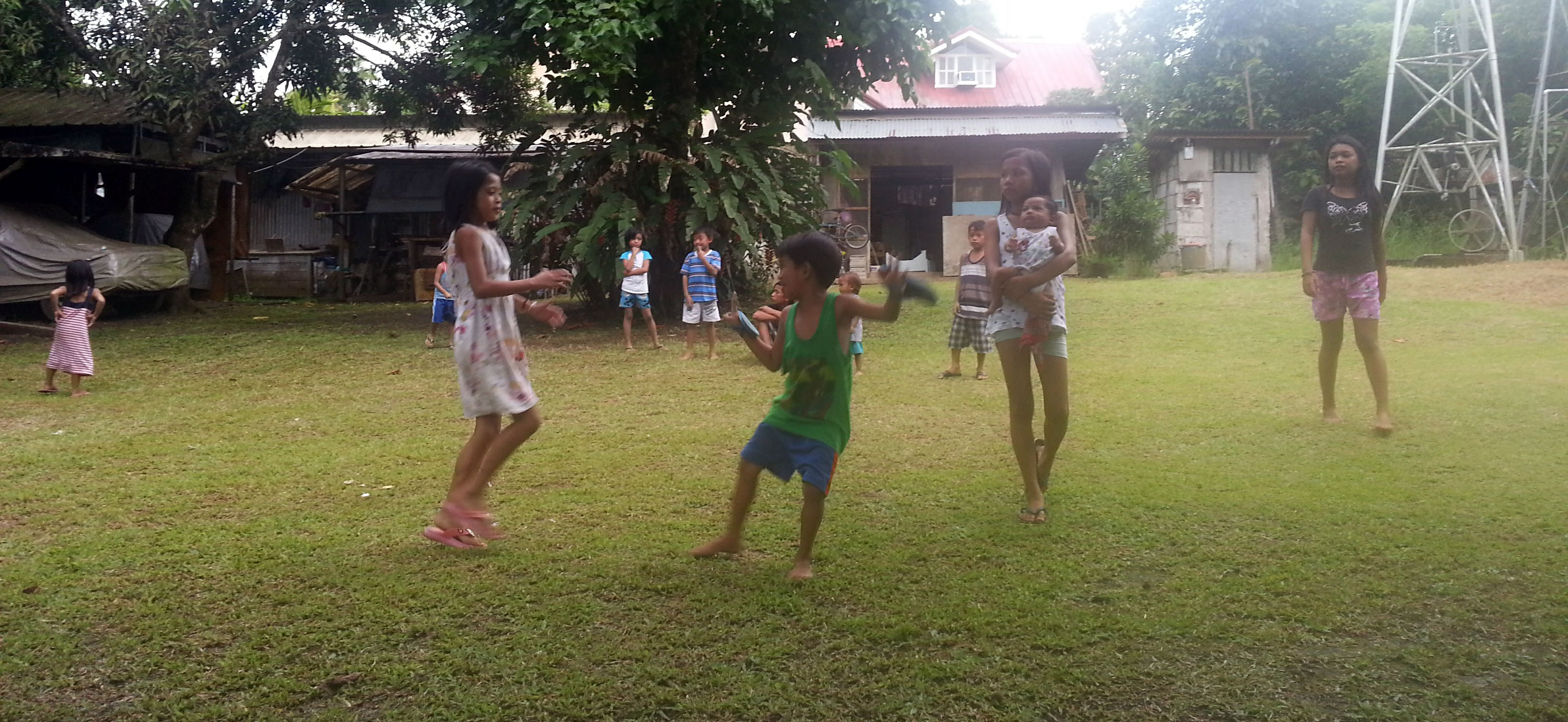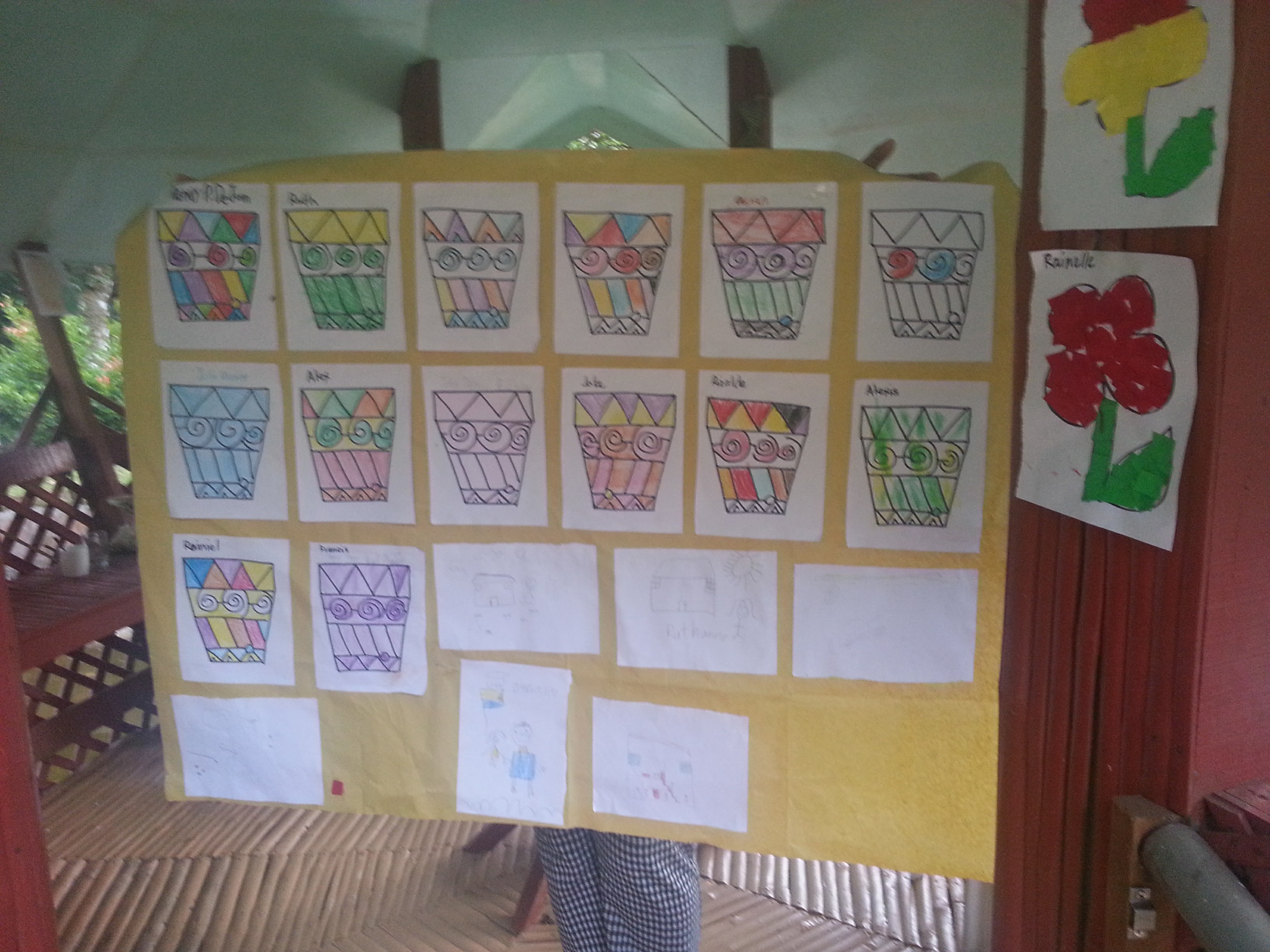A letter from Cathy Chang and Juan Lopez, serving in the Philippines
September 2017
Write to Cathy Chang
Write to Juan Lopez Carrasco
Individuals: Give online to E200533 for Cathy Chang and Juan Lopez’ sending and support
Congregations: Give to D507588 for Cathy Chang and Juan Lopez’ sending and support
Churches are asked to send donations through your congregation’s normal receiving site (this is usually your presbytery).
“I won’t cry in telling this story,” says one 12-year-old-girl. With a stoic face and steady voice, she begins her narration.
“It was December 10 at 8:00 in the evening. I was watching TV when we heard loud pounding on the door. Suddenly, the door opens and two masked men come into our house with guns. My father tries to run, but the men shoot him. They walk out the house but then stop.
“I heard them say that they could not leave a witness. They storm back in and shoot my mother seven times and run out shouting — We are for Duterte!”
The room is silent for a second as all eyes are on her. She looks back dry-eyed. She lowers her face and eyes. Maybe the images have eased, parting into smoky images, or maybe she wants them to end there and leaves out details of what she and her younger siblings did as they grappled with the fact that both their parents had been shot in front of them.
In a circle of 11 children ages 12-15, the children share their stories with each other. Stories of being victims of President’s Duterte’s so called “War on Drugs.” These stories are those of only 11 children out of the thousands currently affected, with more children being victimized on a regular basis. Children who have all witnessed firsthand the government’s strategy to stamp out drugs.
“Share,” they prod each other. “It’s okay,” they reassure each other, “we all have stories.”
A gentle 14-year-old girl with sad eyes takes her turn to speak. She says that she will share the story of another girl who is 12 years old and wants to tell her story but can’t. The younger girl is crying and hugging a pillow. She listens to her story being narrated by her neighbor and friend who also lost parents in the same community. All the children belong to some of the poorest communities in Manila.
As the narrator begins the story of her friend, she too begins to cry. “It was March 12, in the morning. We were preparing for school when we heard screaming from the house next door.”
The younger girl turns her face away from the others and cries quietly as she braces for what is to come. “We went out and saw her grandfather being killed by policemen, followed by her father. Her brother was able to escape from a window. In one swoop, the men in her family were eliminated. The policemen, upset that one escaped, proceeded to put her father in a sack, tying him to the back of his motorcycle and dragging him through the street to ‘make an example’ of him as his children and wife watched in horror.”
By now both girls are deep in their grief as they cry, the younger one covering her face with the pillow as if to block out the horror of the images of that fateful March morning that had just been recounted.
A 13-year-old boy says he is ready to tell his story. A story that is even more violent. A story of a boy who lost the father he was close to, a father whom he loved dearly.
My father, he says, “was salvaged.” Does he even understand what that means, or is it a term that he has heard that will describe what he saw?
“My father disappeared,” he continues. “He did not come home. My mother and I looked for him everywhere. We went to all his friends’ houses to ask if they had seen him. No one had seen him. We called family in the province with hope that maybe he went there and did not tell us, but no one in the province had seen him.
“Then, one day, there was a posting by the police that the bodies of two men and one woman had been found. The bodies had no names or identification. My mother and I went to see if maybe one of them was my father. It was. He had been fished out of the river with a wire around his neck and a tire jack tied at the end of it. There were signs of torture, as his hand had signs of being tied and he had bruises all over his body. His face was disfigured.
“The body was turned over to my mother, and we took it home. We still do not know what happened, as the police say they do not know.”
There has been no investigation. The boy and others suspect it was the work of the police, but without any investigation this family may never know who and why this man, a father of three young children, was tortured and killed.
He quietly ends his story by stating, “Everyone deserves a second chance.”
The stories continue, with the children taking turns to narrate what had happened to their fathers, and in some cases their mothers and other relatives, all victims of what the children call Tophang Operations.
As the children cope with their grief and pain, they narrate with sadness that they also must endure the isolation of being stigmatized by people as they are called names such as “. . . people of no worth,” a pronouncement by the President and Justice Secretary Aguirre who have told the public that drug pushers, users and those they deem as criminals are not human.
As the children continued their activities in the summer camp, they had a chance to laugh, play, sing songs that other teens their age sing, dance to hip-hop beats and draw pictures of what make them happy. These children were no different than the children of the middle-class or the rich. They were children who were polite, talented, funny, kind and resilient. In the moments when they laughed, their laughter was no less than the laughter of other children.
One 13-year-old boy smiles, “I like it here; it’s quiet. There are no sounds of shooting and people screaming.”
These children shared their stories at Kaisummer, a camp organized by the feminist group Baiani, that was designed to help families who are victims of the extrajudicial killings process the impact of the killings on their lives. Ten families were invited to attend this camp. The above stories are excerpted from a report by Juan and Luz Martinez, professor of Social Work at Miriam College, both of whom facilitated therapeutic activities.
More victims are speaking up and are denouncing the “fake” justice of those killings, calling it a “War on the Poor.” On behalf of the National Council, through their Council of Bishops and Bishops Emeritus, last August our church partners issued a pastoral statement that is still relevant in these critical times. It can be found at uccpchurch.com/no-to-killings/.
God-given life is being forfeited in killings such as these that are supposedly ridding the country of drug lords and syndicates. Join us, our partners and the country in our prayers and advocacy for life. And please consider supporting our ministry financially. In doing so, you are walking alongside us as we accompany those who have lost so much.
This call to international mission, which invites all of us into the fullness of life, is what we’ll be sharing about when we visit churches and Princeton Theological Seminary in New Jersey and Pennsylvania in late October and early November. Although our travel schedule is nearly full, we would still love to connect with you via Skype or other means!
Juan and Cathy
Contact us at cathy.chang@pcusa.org.
Please read this important message from Jose Luis Casal, Director, Presbyterian World Mission
Dear Friend of Presbyterian Mission,
What a joy to send this letter! As Presbyterian World Mission’s new director, I thank God for your faithful support of our mission co-workers. The enclosed newsletter celebrates the work you made possible by your prayers, engagement, and generous financial gifts. We can’t thank you enough.
After I began in April, I met with mission co-workers and global partners and was blessed to see firsthand the mighty ways God is working through them! Our global partners are asking us to help them move forward with life-changing ministries. Because of your support, we can say “yes” to these creative and exciting initiatives.
I write to invite you to make an even deeper commitment to this work. First, would you make a year-end gift for the sending and support of our mission co-workers? We need your gifts to end the year strong. With your help, we filled two new mission co-worker positions and plan to recruit for others. The needs in the world are great, and World Mission is poised to answer the call to serve.
Second, would you ask your session to add our mission co-workers to your congregation’s mission budget for 2018 and beyond? Our mission co-workers serve three-year or four-year terms. Your multi-year commitment will encourage them greatly.
Our mission co-workers are funded entirely from the special gifts of individuals and congregations like yours. Now more than ever, we need your financial support.
In faith, our mission co-workers accepted a call to mission service. In faith, World Mission sent them to work with our global partners. In faith, will you also commit to support this work with your prayers and financial gifts?
With gratitude,
Jose Luis Casal
Director
P.S. Your gift will help meet critical needs of our global partners. Thank you!
![]() You may freely reuse and distribute this article in its entirety for non-commercial purposes in any medium. Please include author attribution, photography credits, and a link to the original article. This work is licensed under a Creative Commons Attribution-NonCommercial-NoDeratives 4.0 International License.
You may freely reuse and distribute this article in its entirety for non-commercial purposes in any medium. Please include author attribution, photography credits, and a link to the original article. This work is licensed under a Creative Commons Attribution-NonCommercial-NoDeratives 4.0 International License.



